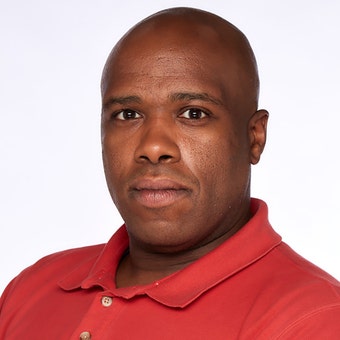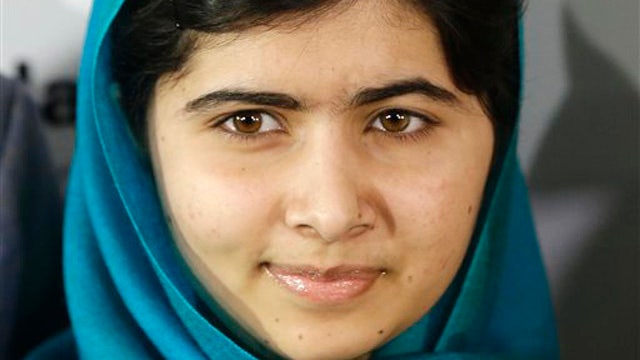Should Malala Yousafzai have won the Nobel Peace Prize?
Taliban attack survivor relays powerful message beyond any accolade
Nobel laureate Malala Yousafzai is known around the world for her activism for gender equality.
In 2014, Yousafzai, then 17, became the youngest winner of the Nobel Peace Prize for her work to protect children from slavery, extremism and child labor. In her home country, Pakistan, she was outspoken in insisting that girls have a right to an education. She was shot in the head by a Taliban gunman while riding a school bus at age 15. She recovered and went on to fight against girls’ oppression worldwide.
She told The Associated Press this month: "I think when you raise your voice, it can have an impact and it can bring change. What will make me pessimistic is if we don’t do anything. So as long as we keep doing our part, there is optimism, there is hope. I think it’s just the silence that keeps things going as they are."
She stays hopeful in a sometimes bleak world, and she’s also a cartoon fan – now she is taking her love of television and film to Apple TV+ as its newest celebrity liberal content creator.
"In my childhood, it was Cartoon Network and, you know, seeing ‘Tom and Jerry,’ ‘Courage,’ ‘Scooby Doo’ and all of those TV cartoon shows. When you are a child – and especially when terrorism started – to know that there is sort of this world in cartoons where you can escape from the reality around you and just giggle and laugh and just entertain yourself. You know, I have been watching comedy movies from Bollywood to Hollywood, and I am a big fan of animation as well. I have not missed a single animation movie. It just keeps you engaged and entertained and also gives you very beautiful messages."
Yousafzai, 23, who graduated from Oxford last June, announced earlier this month that she partnered with Apple in a multi-year deal to develop dramas, documentaries, comedies, animation and series for kids.
"I definitely want to do documentaries and non-scripted shows, and it will cover a lot – hopefully my own journey as well – and the incredible girls that I meet.... But there’s so much more to explore and to learn. I’m excited. You know, I’m still at the stage where I’m exploring ideas. I can tell you that there are so many incredible ideas and it’s so difficult to pick and choose one."
BEGINNING
Yousafzai was shot in the head on Oct. 9, 2012, while riding a bus from school in her home town of Mingora. A fierce supporter of girls’ education, she chronicled Taliban abuses and the challenges of daily life under Islamic rule in a blog, which made her a target.
She was flown to England after the shooting for extensive surgeries to repair her skull.
MAN WHO BEHEADED US JOURNALIST DANIEL PEARL TO BE FREED FROM PAKISTANI PRISON
Since then she has received worldwide attention and praise from human rights groups for her outspoken stand on education.
She has always known who she was and what she would do.
"I will be a politician in my future. I want to change the future of my country and I want to make education compulsory," she said in 2013. "I hope that a day will come [when] the people of Pakistan will be free, they will have their rights, there will be peace and every girl and every boy will be going to school."
RECOVERY
Since her attack and recovery, Yousafzai led the Malala Fund, which she said has invested millions in schools and to provide books and uniforms for schoolchildren.
Yousafzai has always taken delight in telling the Taliban that instead of silencing her, they have amplified her voice around the world.
MATTEL RELEASES ELEANOR ROOSEVELT BARBIE DOLL BEFORE INTERNATIONAL WOMEN'S DAY
However, she has drawn criticism from some in Pakistan as a Western mouthpiece, with a few even suggesting that her shooting was staged. Yousafzai has repeatedly responded to the criticism with a grace far outstripping her years, often saying that education for girls is not just a Western ideology.
Yousafzai has championed Pakistan and often spoken in her native Pashto language, always promising to return home.
She finally journeyed back to Pakistan in 2018, almost six years after the Taliban shooting.
The then-20-year-old returned that May for a four-day visit. She told an audience in the prime minister's office of how she had longed to be back in Islamabad or Karachi even as she promoted her message of girls' education around the world.
"I was always dreaming for the past five years, that I can come to my country, whenever I was traveling abroad," she said, to applause. "Finally, I am here."
As the reality hit home for Yousafzai, her usually self-assured composure vanished. Her lip quivered and she cupped her hands over her face to hide the tears. But the grit that has come to define Yousafzai soon returned. She took a deep breath, wiped the tears and resumed speaking.
FUTURE
Many girls look up to Yousafzai as a hero, but she insists she doesn’t walk alone.
She told The Associated Press this month: "I have many, many heroes, from my parents to historical figures like Benazir Bhutto, Martin Luther King, Nelson Mandela. But the people who have actually and truly inspired me are the young girls that I have met in my journey. Girls from Iraq to Brazil, Nigeria, Kenya. So many of these girls have incredible stories that they have seen – wars, conflicts. They have become displaced. They have been forced into marriages at early ages. But they do not give up on their dreams and they are still fighting for the right to education, for their right to a safe future. If they are not giving up on their fight for education, then why should we?"
CLICK HERE TO GET THE FOX NEWS APP
Yousafzai hopes to continue to build a beloved community through her world travels and good deeds.
"My message to young girls is always, never underestimate yourself," she told The Associated Press this month. "We are often told that you have to grow older and get a Ph.D. or something, and then once you are 50 or 40, then you can change things. Follow that path if you want, but you can change things now as well. Do not underestimate the power you have, even in the small actions that you take, whether that is raising awareness, doing fundraising for a cause you believe in, talking to somebody that doesn’t agree with you.... Talk about why women’s rights and girls’ rights are important, why climate change is important. All of these things matter."
The Associated Press contributed to this report.











































